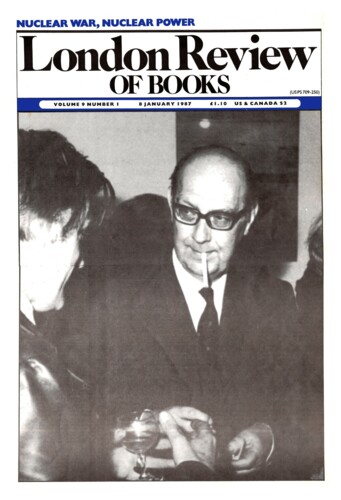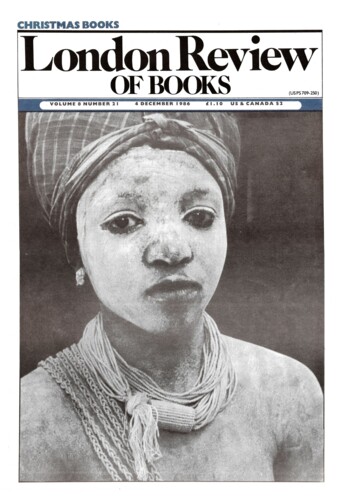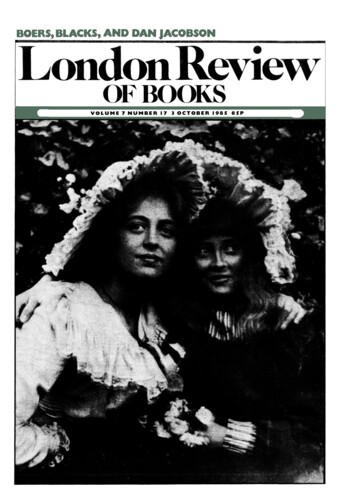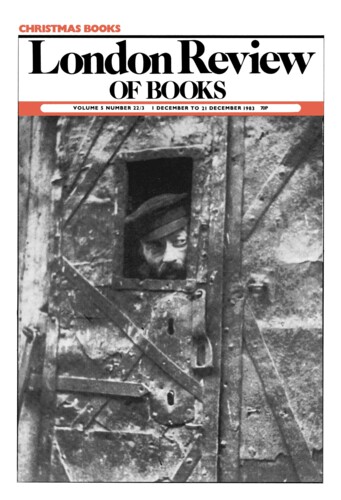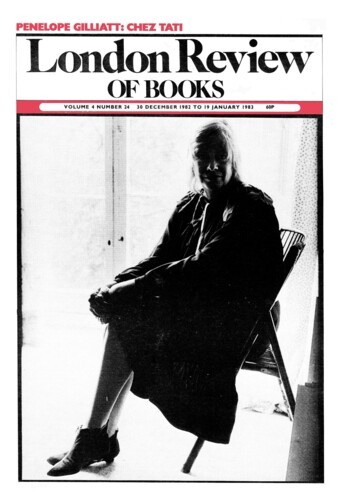Vous êtes belle
Penelope Fitzgerald, 8 January 1987
By the time he was 20 Henri Fournier wasn’t able to say whether it was the country itself that he missed – Epineuil-le-Fleuriel, in the heart of the old Berry province – or the time that he spent there. He shared his country schoolhouse childhood with his young sister Isabelle and their most intense memory was the arrival, at the end of the year, of the livres de prix. They hid themselves, and read every book. But though the dreaming reader persisted in Henri, he became tough and intransigent. He was sent to the Lycée Voltaire and didn’t like it, started to train for the Navy and didn’t like it, prepared for the entrance exam for the Ecole Normale Supérieure and didn’t pass it. In June 1905, however, while he was still a lycéen in Paris, he saw (almost as if he had been expecting her), and spoke to, and walked a few hundred metres with, a tall, blonde jeune fille. Her name was Yvonne de Quiévrecourt, and she was of good family, staying with her aunt. He told her, in the words of Pélleas: ‘Vous êtes belle.’ She dismissed him, saying they were both no more than children, and for the next eight years, during which he never saw her, she was his Mélisande, and (transferred to the deep country) the Yvonne de Galais of Le Grand Meaulnes, which was published in 1913. Meanwhile, Fournier – he used the pen-name Alain-Fournier from 1905, partly to avoid confusion with a racing driver – had become a journalist and had a succession of mistresses, the last being the strong-minded actress Simone Benda, who pulled every string, in vain, to get him the Prix Goncourt. He took to racing cars and flying – ‘like Peter Pan’, he told Francis Jammes. Le Grand Meaulnes was written, for the most part, in Rue Cassini. If he had survived the war, what would he have written? Not, probably, Colombe Blanchet, which he had begun, but, as he put it himself, about ‘the countries behind the painted doors of the Paris café-concerts; a world as terrible and mysterious in its own way as the world of my other book’.’
